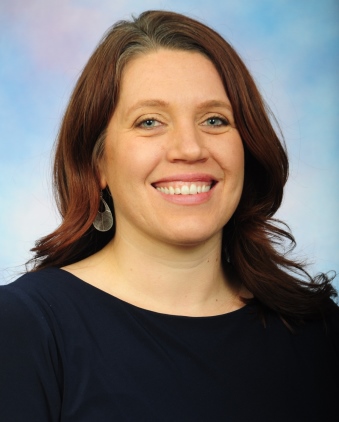
African-American cancer survivors are more likely to experience financial hardship from cancer and cancer treatment compared to whites, according to preliminary study results presented by Wayne State University School of Medicine Assistant Professor of Oncology Theresa Hastert, Ph.D., at a scientific meeting Sept. 27.
African-American patients also are more likely to experience lasting debt or forego necessary care due to cost when compared to whites, who use existing assets such as retirement or other savings to pay for treatment.
The results of "How does the financial impact of cancer differ by race? Results from the Cancer Survivorship in Metropolitan Detroit cohort study" were revealed at the American Association for Cancer Research's ninth conference on The Science of Cancer Health Disparities in Racial/Ethnic Minorities and the Medically Underserved, held Sept. 25-28 in Fort Lauderdale, Fla.
"More than 1.6 million adults are diagnosed with cancer in the United States each year, and many face some form of financial hardship related to cancer and cancer treatment, even when they're insured. To pay for cancer care many patients experience changes to their financial situation that can include everything from cutting back on leisure spending to dipping into savings or selling assets, taking on debt, or even losing a home or declaring bankruptcy," said Dr. Hastert, a researcher and scientific member of the Barbara Ann Karmanos Cancer Institute and its Population Studies and Disparities Research Program. "Estimates of how many cancer patients and survivors face financial hardship vary depending on what types of hardship are considered, but in our study about half of survivors faced financial hardship in some form. In addition to causing financial problems down the road, these financial difficulties can impact cancer patients' ability to get the care that they need."
Dr. Hastert stressed the importance of understanding the types of financial hardship cancer patients experience, including the fact that different patients will face different financial outcomes.
Dr. Hastert and colleagues used preliminary data from African-American and white adults between the ages of 20 and 79 who were diagnosed with a first primary breast, colorectal, lung or prostate cancer since Jan. 1, 2013. The researchers targeted up to 1,000 survivors diagnosed and/or treated at Karmanos. Participants completed a baseline questionnaire online or by phone that collected basic socioeconomic and insurance information such as household income, insurance type, marital status and employment status.
Data from 695 participants (281 white, 414 African-American) showed that 52.4 percent of all cancer survivors experience some form of financial burden related to the disease, including 56.6 percent of African-Americans and 46.3 percent of whites. Of those, 31.2 percent of African-Americans were in debt due to expenses related to their cancer treatment, compared to 18.1 percent of white survivors. African-American patients were also more likely to have self-limited medical care by avoiding a doctor visit when it may have been needed, or skipping doses of prescribed medication because of cost concerns - 21.3 percent of African-Americans and 14.6 of whites said they made such choices.
For several types of financial hardship - such as withdrawing money from savings or retirement accounts or selling or refinancing a home - patients must first have those assets. "Unfortunately, many patients do not have those assets to tap into to pay for cancer care, and those patients are disproportionately African-American. In the absence of such assets, patients face fewer choices, and may be forced to take on debt or forego necessary care. I was surprised by the magnitude of the differences in lasting debt and reports of not receiving medical care due to cost," Dr. Hastert said.
The study results are preliminary, with further responses pending, but could contribute to interventions designed to reduce the financial burden of cancer. She is now working with colleagues to understand the types of debt incurred.
"In our study we asked specifically about whether participants borrowed money from family or friends to pay for cancer care, and 9.8 percent of both white and African-American survivors indicated that they had done so. But a much higher proportion indicated that they were currently in debt due to cancer care, suggesting that many survivors borrowed from other sources as well," she added. "From qualitative work in this same group of survivors, I know that at least some of that debt is to the cancer center and that several survivors continue to make monthly payments toward the cost of their treatment."
The study is supported by institutional research funds from the Karmanos Cancer Institute. Dr. Hastert attended the conference with fellow WSU researchers Terrance Albrecht, Ph.D.; Cathryn Bock, Ph.D.; Julie Boerner, Ph.D.; Susan Eggly, Ph.D.; Stephanie Pandolfi, Ph.D.; Ann Schwartz, Ph.D.; Sarah Stanton, Ph.D.; and Hayley Thompson, Ph.D.